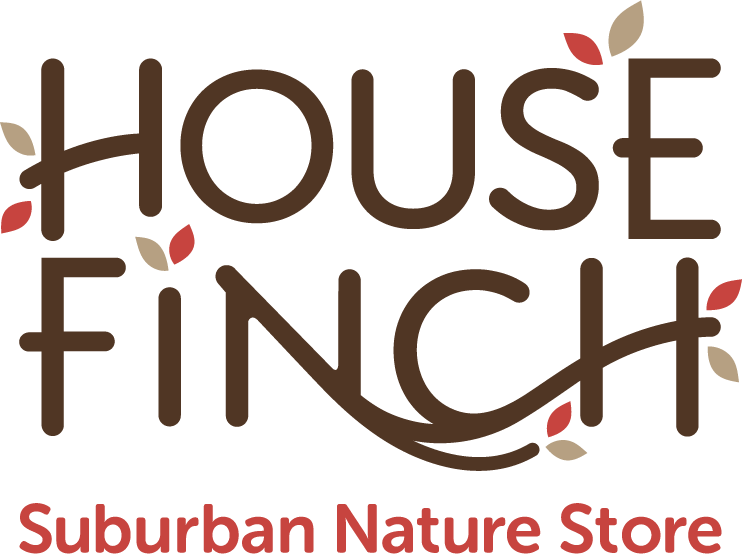Our mission at House Finch is to cultivate curiosity and awareness for suburban nature in our community, with an intentional focus on birding & sustainability.
Hi, my name is Kara. I’m the owner of House Finch, an avid birder, and suburban nature enthusiast. The more I expanded my hobby of birding and exploring the nature
in my own backyard, the more I noticed some things that I wished were different. Rather than wish, I decided to start House Finch with my business and life partner, Chris. We live in Collingswood, New Jersey, and we are thrilled to start this business here, too.
At House Finch, we will supply a variety of products that focus on supporting and exploring suburban and backyard nature, with a special focus on birds. I have discovered the lessons, beauty, and hilarity of watching and feeding birds, and I hope to be a small part of making birding more accessible and sustainable in my community. Simply put - birding is a joy - and it’s only a matter of time before your spark bird pays you a visit.
Kara and Chris checking out hawk migration at Hawk Mountain, PA
“The more I expanded my hobby of birding and exploring the nature in my own backyard, the more I noticed some things that I wished were different.”
Curiosity #1: Reduce Single-use Plastic
The first problem I noticed was the amount of plastic waste associated with birdseed, suet, and cylinders. Everything is packaged in plastic. And certain products are over the top with plastic (I’m talking about you, suet cakes). Why does this little individual cake have to be packaged in a plastic holder, sealed with a plastic label, and then wrapped in plastic? What in the world?!
I want to explore a retail model for birdseed and supplies that allows backyard birders the option to reduce their plastic waste significantly. Our multi-step plan is to start with purchasing birdseed in bulk 50+ lb bags from a mid-west farm and local distributor (both family-owned). Why does this matter? There is less transportation associated with a farm only a few hours away and a distributor located in Pennsylvania. There is much less trash, low packing materials, and no pallets needed for delivery (any needed pallets are reused rather than left with us for disposal). Why doesn’t everyone do this? Because it’s not convenient - buying seed directly from a farm means a lot of communication, planning ahead (no ‘next-day’ delivery is available), and manual labor on our part. Next, we offer this bulk seed to customers in our store. Customers can purchase seed by the pound and take it home in either our paper bags (fully home-compostable and recyclable) or their own reusable container.
Many of the bulk seed bags are made of paper, but a few are still made from plastic. However, the few plastic bags we use are bulk and allow us to greatly reduce the amount of total plastic associated with birdseed. This isn’t perfect, but a good step forward. We hope that through our advocacy and customer demand, oil-heavy seeds can be packaged in bulk bags with plant-based liners rather than plastic in the future.
Curiosity #2: Reduce the Use of Animal Byproducts
I’ve always felt conflicted about the gelatin used in commercial seed cylinders and the beef fat that is the main ingredient of all suet cakes. I do my best to live a mostly plant-based lifestyle, so it didn’t take long before I began the search for alternatives to these products.
But for the most part, I couldn’t find them. And if I did, they either weren't cost-effective, or I found myself back in the single-use plastic cycle for these small, individually-wrapped products.
Unable to find and (reasonably) purchase products that solve these problems, I developed recipes that use plant-based ‘gelatin,’ high-fat nut butters, seeds, and oils…and some options that include bugs, too! After establishing House Finch’s store operations, we plan to introduce these recipes and products to our customers. Regardless of anyone’s lifestyle, politics, diet, and purchasing preferences, the birds LOVE these plant-based products!
Everyone wins.




